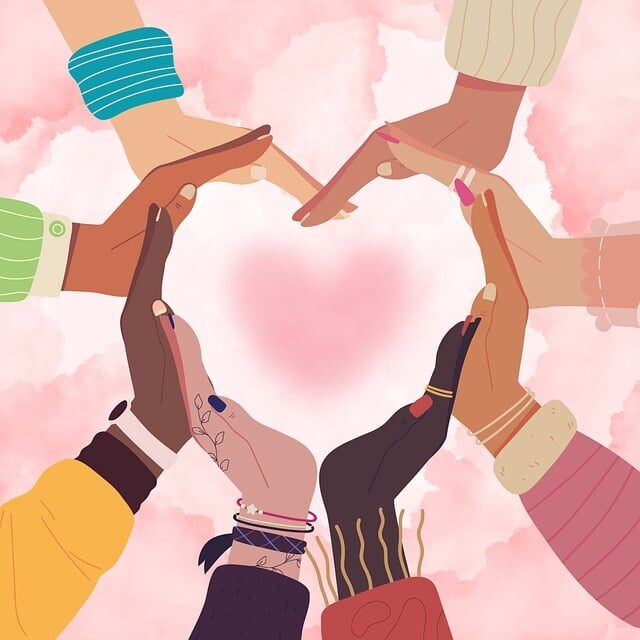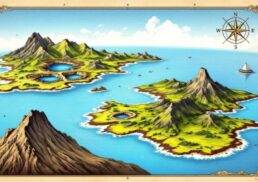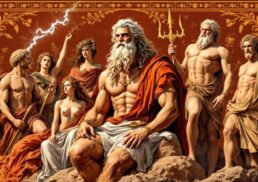The humanities study human culture, history, and values, which is essential when we define the humanities. These academic fields include literature, history, and philosophy. They help us understand what it means to be human, fostering critical thinking and empathy. By exploring the humanities, we learn about our past, interpret our present, and shape our future.
Table of Contents
Key Takeaways
The humanities encompass disciplines like literature, history, philosophy, and art, focusing on understanding human culture and experiences.
Humanities education promotes critical thinking, cultural awareness, and empathy, contributing to personal development and informed citizenship.
The field has evolved from ancient Greece to include diverse voices and methods, illustrating its adaptability and relevance in contemporary society.
Understanding the Humanities: A Definition

The term ‘humanities’ originates from the Latin ‘humanitas,’ signifying the qualities that make us human, such as compassion, critical thinking, and cultural awareness.
Humanities disciplines encompass the study of human culture, including:
literature
history
philosophy
art
These fields share a common goal: to explore and understand the human experience, offering insights into our past and guiding us toward the future.
Examining diverse heritage perspectives and synthesizing information through the humanities allows us to critically assess our beliefs and values.
Humanities education shapes well-rounded individuals who can navigate the complexities of the human environment. Students studying humanities learn to appreciate cultural richness and think critically about their own perspectives.
The humanities connect us to the broader spectrum of human knowledge, fostering a deeper understanding of human nature and societal dynamics.
Major Disciplines within the Humanities
The humanities encompass a wide range of academic disciplines, each contributing to our understanding of human culture and experiences. Literature, for instance, offers a window into the human soul, reflecting societal issues, emotions, and personal narratives. Through literary studies, we gain insight into different cultures, historical contexts, and the universal themes that connect us all.
History, a cornerstone of the humanities, provides a framework to understand past events and their impact on the present. Studying history teaches us about a significant historical element and develops our ability to critically evaluate sources and narratives. The study of history helps us recognize patterns and trends, fostering a deeper appreciation for the complexities of human societies.
Philosophy explores fundamental questions about existence, knowledge, and ethics. It challenges us to deeply consider the principles that govern our lives and the nature of reality. Art history examines the development of artistic expression across different eras and cultures, offering insights into societal values and historical context.
The Evolution of Humanities Education
Humanities education has a rich history that dates back to ancient Greece, where it was integral to educating citizens. The Greeks believed that studying subjects like philosophy and literature was essential for developing well-rounded individuals capable of contributing to society. This emphasis on holistic education laid the foundation for the liberal arts tradition.
During the Middle Ages, the concept of the seven liberal arts, which included grammar, rhetoric, and logic, shaped medieval education. These subjects were considered crucial for intellectual development and were taught alongside more practical skills.
The Renaissance marked a significant shift, with a renewed focus on studying humanities subjects rather than merely practicing them. This period saw the rise of classical studies and the works of Renaissance scholars, who sought to revive the knowledge and wisdom of ancient civilizations.
The 20th-century postmodernist movement challenged traditional views of the humanities, promoting more inclusive and egalitarian perspectives. This era saw the humanities expanded to include diverse voices and experiences, reflecting the changing social and cultural landscape.
Humanities education continues to evolve today, fostering adaptability in students and preparing them for diverse career paths and roles.
The Interconnection Between Humanities and Social Sciences
The humanities and social sciences are deeply intertwined, each offering unique perspectives on understanding human conditions. Humanities focus on human culture, creativity, and abstract concepts, whereas social sciences use empirical methods to understand societal structures and behaviors. Both fields explore the complexities of human life from different angles.
Humanities emphasize values, beliefs, and cultural narratives, providing a framework for understanding complex societal issues such as justice, equality, and freedom. Social sciences prioritize scientific study and empirical evidence to analyze social phenomena. Together, these fields offer a comprehensive approach to studying human experiences, addressing the intersections of gender, race, and class inclusively.
Humanistic methods are particularly valuable in media studies, where they facilitate critical evaluations of representation and identity. To employ humanistic methods in preserving and sharing human stories through the humanities helps us recognize shared experiences and commonalities, enhancing public policy and fostering more empathetic, informed communities.
Importance of Humanities in Liberal Arts Education

In liberal arts education, the humanities foster critical thinking, interpretation skills, and cultural competence. These skills are highly valued by employers across various professions, as they enable individuals to navigate diverse social contexts and communicate effectively. Engaging with humanities subjects helps students develop a deeper understanding of human values and cultural complexities.
The arts and humanities also encourage imaginative thinking and problem-solving, essential skills for success in both personal and professional life. Whether through visual and performing arts or literary studies, humanities education enriches students’ lives and prepares them for a wide range of career opportunities.
Applications of Humanistic Methods
Humanistic methods are diverse and adaptable, beginning with curiosity and hypotheses leading to conclusions based on primary and secondary sources. Primary sources in humanities research, such as novels, photographs, and diaries, provide firsthand accounts that offer invaluable insights into human experiences and perspectives.
The digital age has given rise to digital humanities, a field that integrates technology with traditional humanistic study. This innovation allows scholars to analyze vast amounts of data and explore new ways of understanding cultural representation and communication. In media studies, humanistic methods facilitate the examination of how media shapes cultural narratives and identities.
Comparative religion is another area where humanistic methods are invaluable, enabling the exploration of belief systems through cultural contexts rather than dogmatic interpretations. Gender studies also benefit from these methods, as they analyze the constructed nature of gender roles and their implications on personal identity and societal norms.
Humanities and National Life
The humanities play a significant role in national life, promoting unity and understanding through cultural engagement. Public initiatives, such as the United We Stand Summit, emphasize collaboration between the National Endowment for the Arts and the National Endowment for the Humanities to combat division and promote unity. Community art projects are examples of how the humanities foster shared visions and collective goals among diverse groups.
Humanities education stimulates critical thinking, enabling individuals to contemplate the effects of new ideas on culture and politics. This perspective is crucial for making informed decisions and weighing the moral implications of human actions. Engaging with the humanities makes us more curious about diverse cultures and experiences, enhancing empathy and understanding.
The study of humanities clarifies the roles of individuals within a democratic society, promoting active participation and informed citizenship. Especially in challenging times, the humanities contribute significantly to personal well-being and societal enrichment through art, literature, and music.
Humanities Scholars and Their Contributions
Humanities scholars have made invaluable contributions to civic participation and democratic society. Their work helps clarify the roles of citizens, promoting active engagement and informed decision-making. Exploring fundamental questions about human nature, values, and societal structures, these scholars provide insights that guide public policy and community initiatives.
The contributions of humanities scholars extend beyond academia, influencing various aspects of national life. Their research and teachings foster a deeper understanding of human experiences, encouraging empathy and cultural awareness. This, in turn, helps build more cohesive and resilient communities.
The Role of Humanities in Understanding Human Nature
The humanities are essential for understanding human nature, emotions, and societal issues. Literature, for example, serves as a reflection of human experiences, fostering empathy and cultural awareness by connecting us with diverse narratives and perspectives. Through literary studies, we explore the profound questions regarding the meaning, value, and purpose of human existence.
Philosophy within the humanities explores fundamental questions about existence, knowledge, and ethics, shaping critical thinking and reasoning skills. It challenges us to deeply consider the principles that govern our lives and the nature of reality. By engaging with philosophical texts, we develop the ability to critically assess ideas and discourses prevalent in society.
Humanities disciplines also contribute to healing and understanding by providing avenues for expressing pain and building support networks in the aftermath of community tragedies. The arts and humanities play a crucial role in fostering empathy and shared understanding, essential for community resilience against hate-fueled violence.
Visual and Performing Arts in Humanities
The visual and performing arts are integral components of the humanities, offering insights into societal values and historical contexts. Art history, for instance, examines the development of artistic expression across different eras and cultures. Studying art provides a deeper understanding of the human experience and the cultural narratives that shape our world.
Performing arts, such as theater and music, also play a significant role in the humanities. These disciplines reflect and influence societal values, providing a platform for exploring complex emotions and social issues. The arts enable deeper connections with others, fostering empathy and cultural awareness.
Addressing Common Misconceptions About Humanities
There are several common misconceptions about the humanities, particularly regarding career prospects. Contrary to popular belief, degrees in humanities lead to versatile career opportunities, equipping graduates with critical thinking and communication skills valued by employers. Research shows that while STEM majors may initially earn more, individuals with humanities degrees often catch up in earnings by mid-career.
Many employers prioritize skills such as innovation and problem-solving over the specific major of candidates, making humanities graduates competitive in various fields. A significant percentage of humanities graduates pursue careers outside their major, highlighting the flexibility of these degrees.
Learn more, Myths vs Reality: Busting 5 myths about Humanities
Summary
In conclusion, the humanities are a vital part of understanding human culture, values, and experiences. They provide the tools to critically assess our beliefs, foster empathy, and navigate the complexities of the modern world. By appreciating the contributions of humanities scholars and the role of humanities in education, national life, and personal development, we can better appreciate the richness of the human experience. Embrace the humanities, and let them guide you in exploring the profound questions of human existence.
Frequently Asked Questions
What are the humanities?
Humanities refer to the academic disciplines that investigate human culture and experiences, comprising fields such as literature, history, philosophy, and art. They are essential for understanding diverse human values and perspectives.
How do humanities and social sciences differ?
Humanities and social sciences differ primarily in their focus and methodology; humanities emphasize human culture and values through qualitative analysis, whereas social sciences utilize empirical methods to study societal structures and behaviors.
What career opportunities are available for humanities graduates?
Humanities graduates have diverse career opportunities in education, communication, public policy, and the arts, leveraging their critical thinking and communication skills effectively. They can thrive in roles such as educators, writers, policy analysts, and cultural professionals.
How has humanities education evolved over time?
Humanities education has evolved from its ancient Greek origins, through the transformative periods of the Middle Ages and Renaissance, to embrace modern inclusive perspectives in the 20th century. This progression reflects a growing recognition of diverse cultural narratives and critical inquiry.
Why are humanities important in liberal arts education?
Humanities are important in liberal arts education as they promote critical thinking, cultural competence, and effective communication, which are vital for success in various social and professional environments. These skills prepare students to engage thoughtfully and collaboratively in an increasingly interconnected world.









